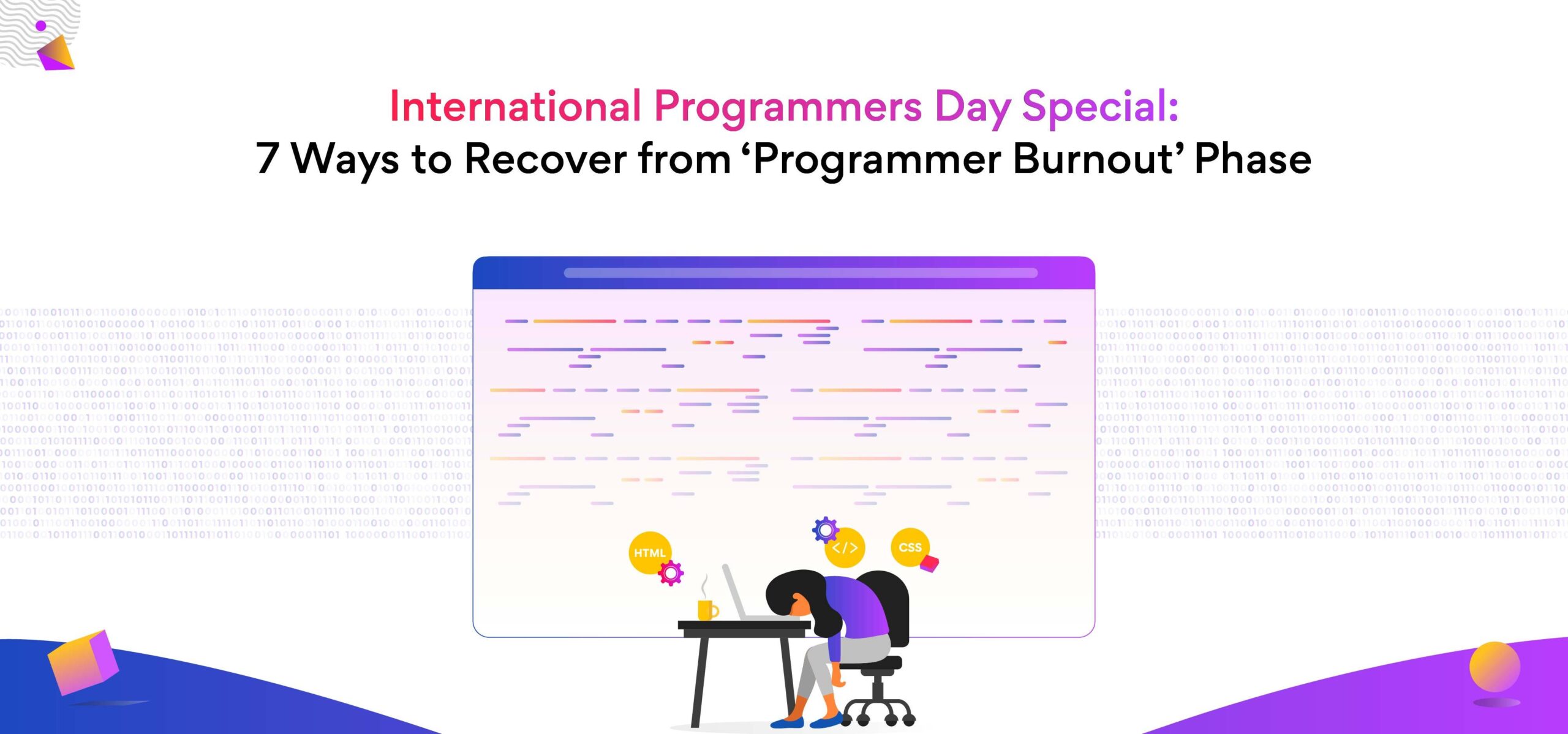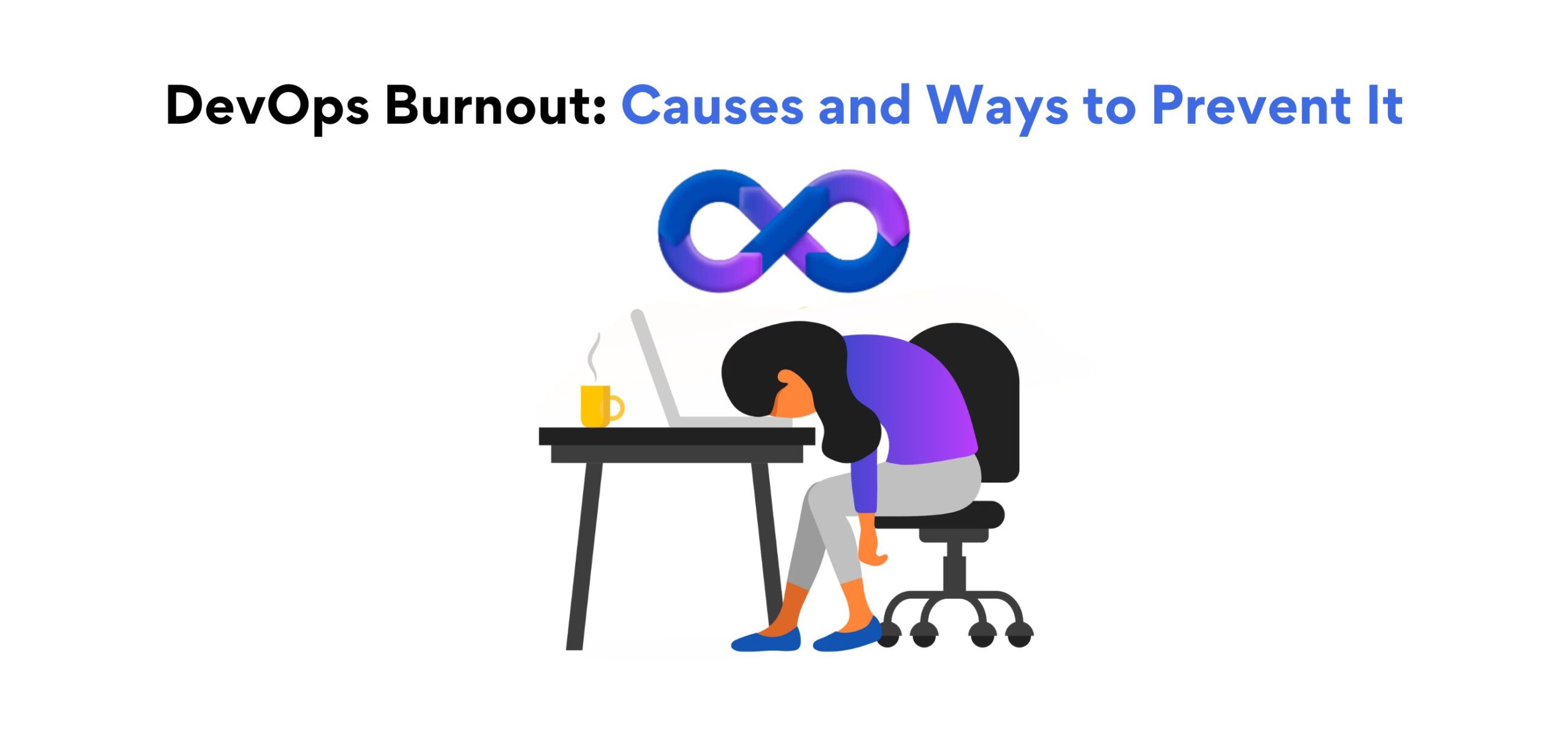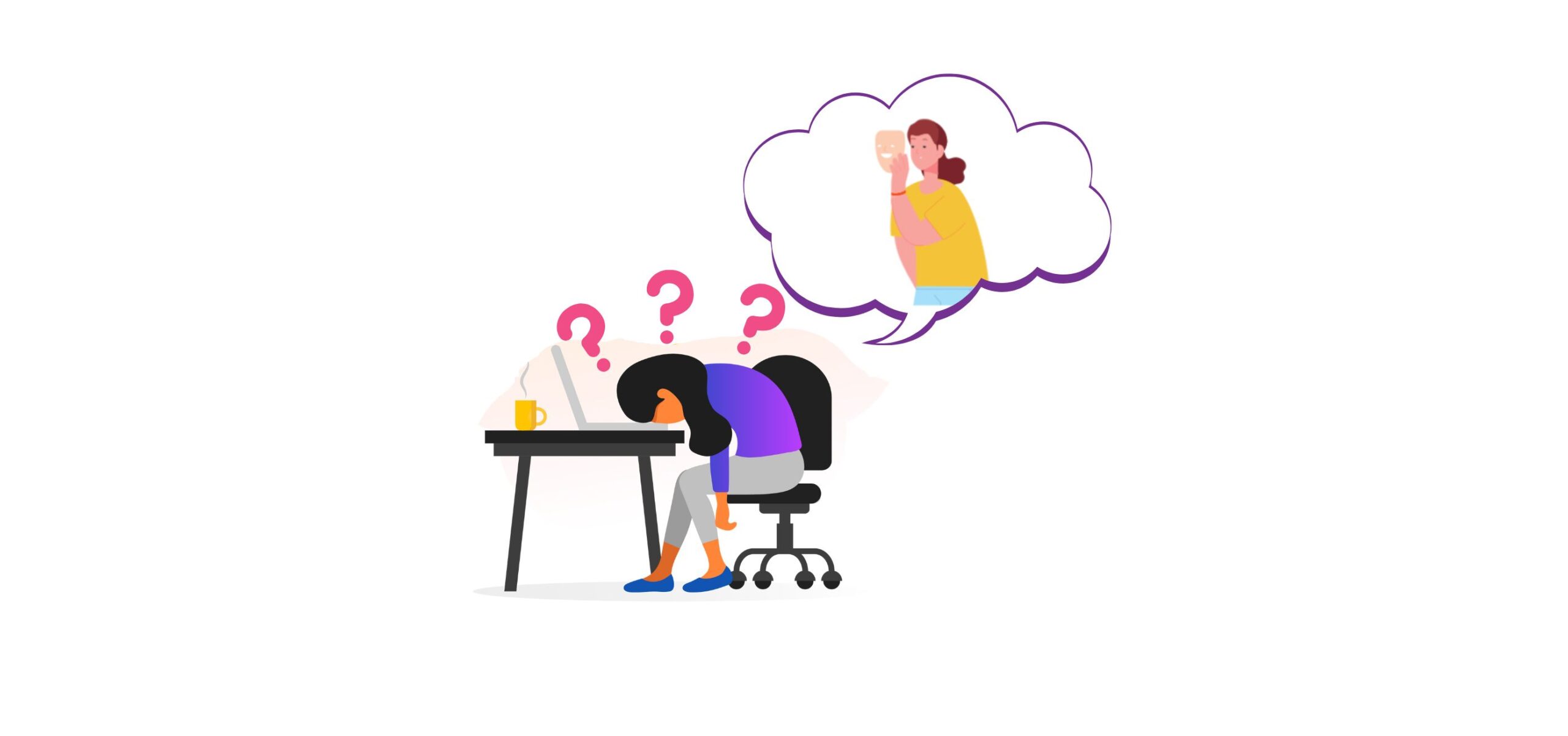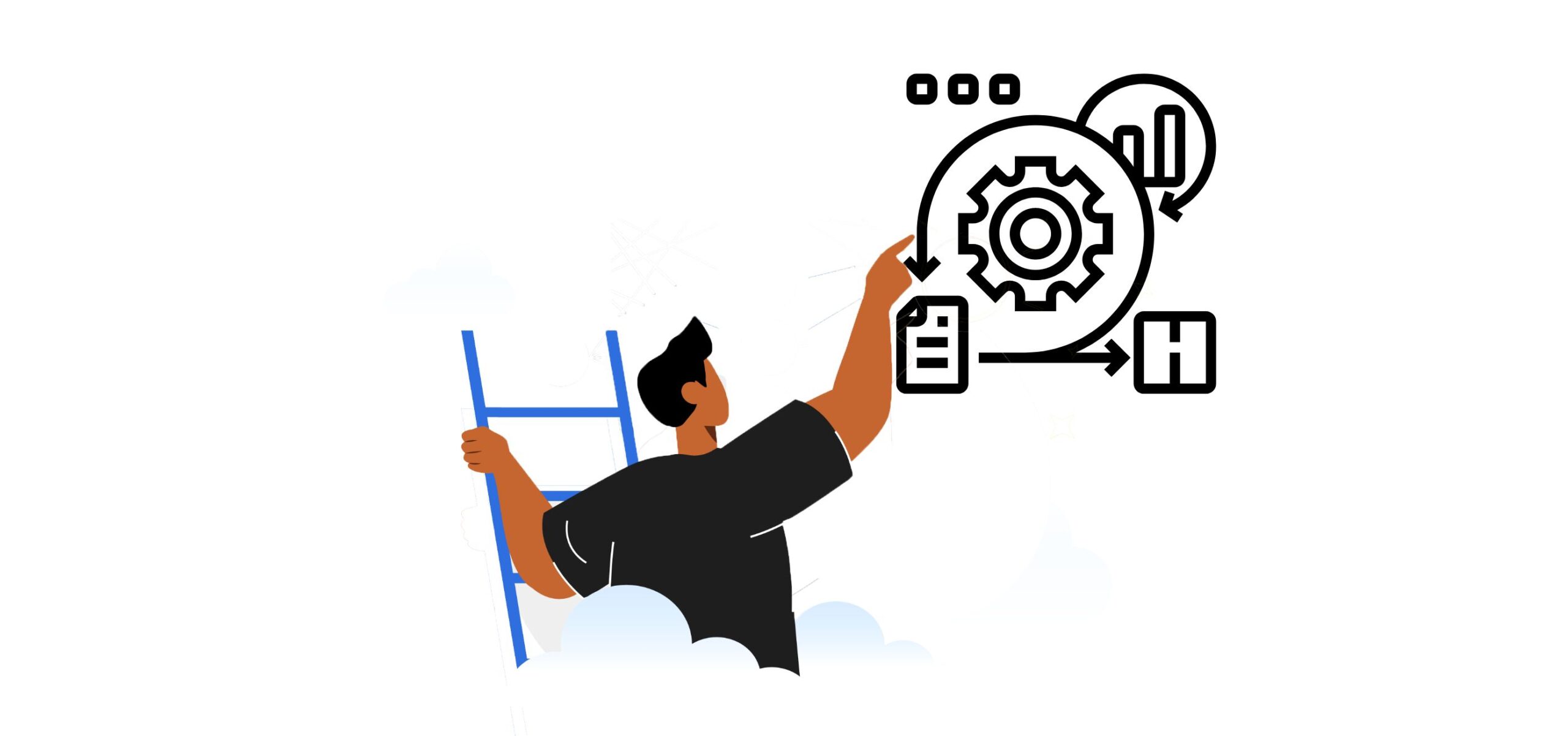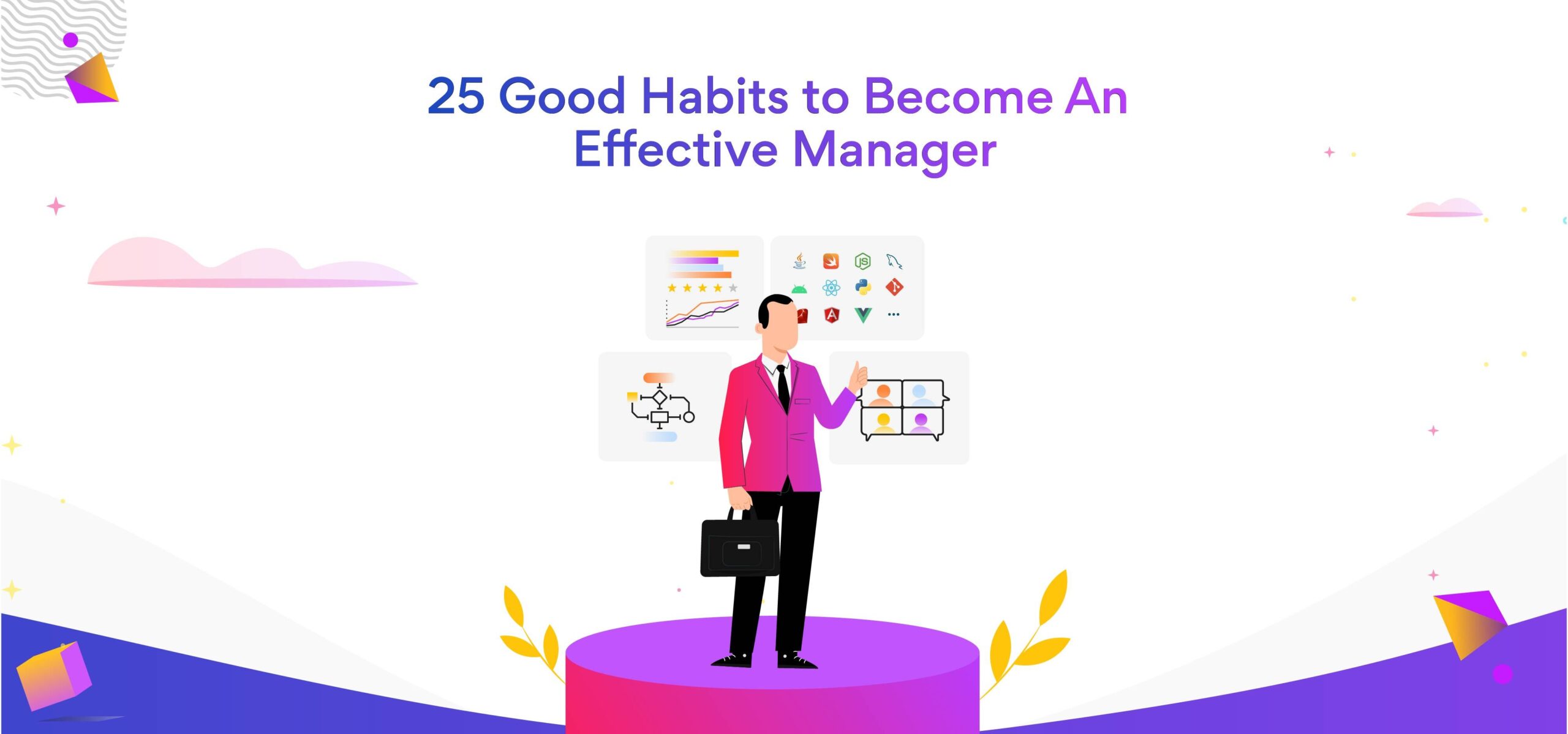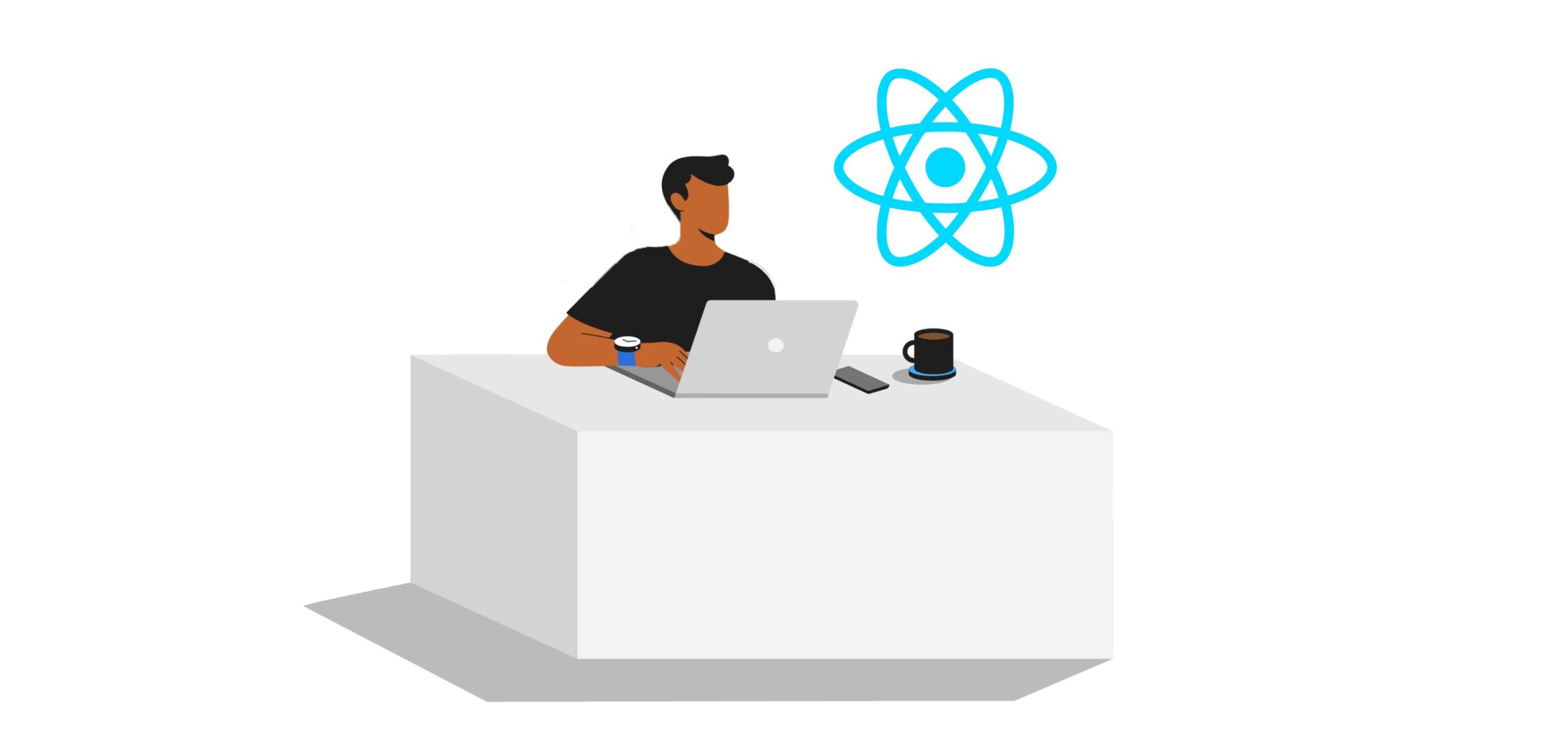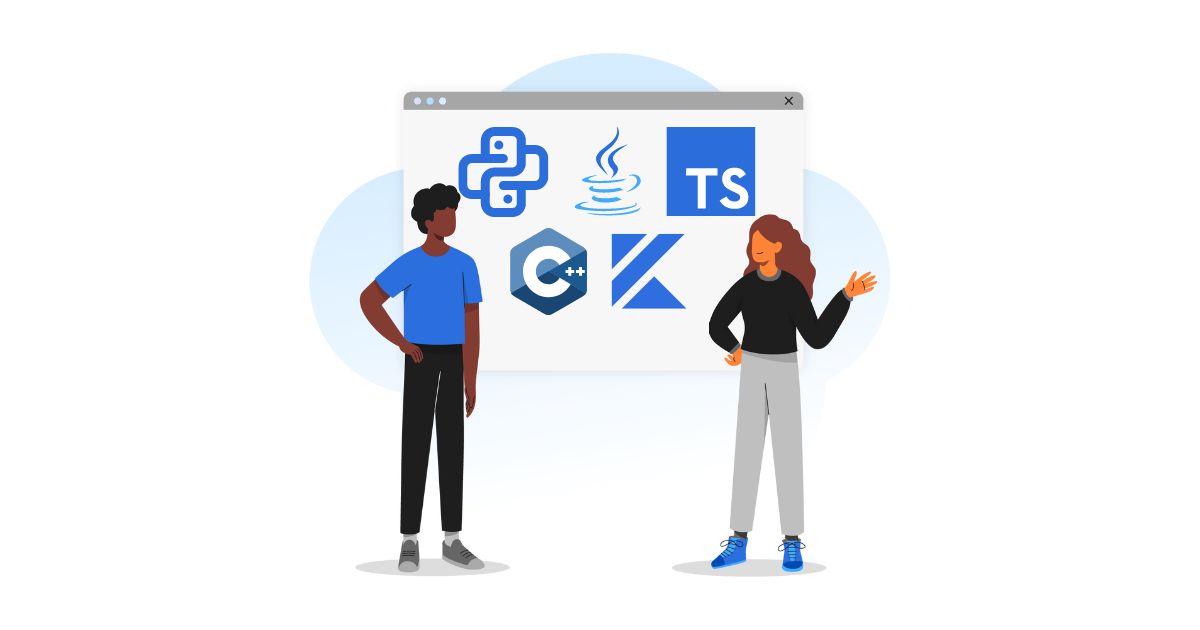International Programmers Day Special: 7 Ways to Recover from the Programmer Burnout Phase
On this international programmers day, let’s focus on a vital issue – Programmer burnout. In this blog post, we will discuss the signs, causes, and remedies for programmer burnout.
Let’s get started.
Sometimes developers feel trapped, putting in a lot of effort over an extended length of time on projects that seem impossible to finish. Eventually, they get sucked deep inside their work, unable to escape.
Such programmers may lose their enthusiasm for coding, or coding may no longer spark their motivation as it once did. Well, these are all mild symptoms of burnout in programming.
In the IT sector, burnout is a severe and pervasive problem. If developers don’t address this problem and take action at the right time, then they may have to face severe consequences. Quitting programming altogether can be one of them.
What causes programmer burnout?
Stress or overwork can lead to burnout – a state of physical, emotional, and mental collapse. Even though burnout is not a medical illness, it has a significant impact on the quality of life.
Different people experience burnout in different ways. However, one thing is certain: burnout doesn’t happen suddenly; it develops over time.
You must identify the signs of developer burnout early on and take immediate action to treat them. So, let’s look at some signs to identify programmers’ burnout.
Physical symptoms
-
Physical fatigue
It is unhealthy to spend more than eight hours a day at a desk in front of a computer. Long screen timings can lead to eye strain, headaches, and other health problems. Lack of physical activity makes fatigue and sluggishness a norm. Many developers indulge in energy drinks and stay up late to treat this ailment, feeling even more worn out the following days. -
Mental fatigue
Programming needs you to solve challenging problems, which is a mentally taxing task. Lack of breaks causes weariness to build up. If you don’t change your focus and give your brain a break, exhaustion will ultimately catch up to you. -
Lowered immunity
You become less productive due to physical and mental exhaustion, which raises your stress levels. Prolonged stress weakens your immune system and increases your susceptibility to colds and the flu. -
Change in sleep habits and appetite
The factors that can affect your eating or sleeping patterns are improper sleep and cumulative stress. You might, for instance, try to take away your anxiety by stress-eating throughout the day, which could result in overeating and weight gain, or you might sleep for 8 to 10 hours a day but still feel exhausted.
Emotional symptoms
-
Feeling pressured
Exhaustion on a physical, emotional, and cognitive level is the main burnout symptom that impairs productivity. These symptoms may surface due to internal forces. -
Sense of self-doubt
Picture this: Every time you open your code editor, you don’t feel like coding, and this has been going on for weeks. Such a fall in work performance may cause you to have negative self-talk, downplay personal successes, believe you are unqualified for the position, or even contemplate changing careers. -
Depersonalization
Cynicism or depersonalization occurs when you are cold or even inconsiderate toward your clients, projects, and coworkers. The most frequent causes include a heavy workload, unfair treatment at work, and workplace conflict. If you continue to have this feeling, you may burn out and lose interest in your profession.
Behavioral symptoms
-
Absenteeism
You may be burned out if you have a tendency to arrive late for work or frequently take sick days or personal days. -
Withdrawing from responsibilities
You tend to put things off and avoid taking on responsibility when you are exhausted and unsure of your abilities to prevent a potential failure. -
Isolation
To avoid social interaction, you no longer wish to speak to friends or coworkers, deny invitations, become upset when someone speaks to you, or even arrive early or stay late. -
Food and alcohol abuse
If you frequently eat snacks throughout the day or spend every evening at the bar, it’s time to take a break and deal with the issue.
7 tips to prevent programmer’s burnout
-
Identify the signs
Do you notice a loss of enthusiasm for coding? Does coding no longer spark your motivation like it once did? Do you end up doing nothing despite committing yourself to work?
Well, these are all symptoms of programmer burnout.
If you feel like you are losing interest in your work or are feeling helpless about finishing a task, it is your time to take a break and work on mental renewal.
Related post: 11 Ways to Motivate Remote Software Developers in 2022 -
Take a break
Self-care comes before work or money any day.
So, it’s best to take a few weeks off and make up for your absence later rather than forcing yourself to finish the tasks every time you sit down in front of the computer. You can try another hobby that interests you instead of coding, such as swimming, football, or shooting while on a break. -
Include friends and family
Talk to your friends and family about your struggle.
For example, if a task at hand is causing tension among your team members, speak it out. Seek the support of your friends and family to prevent your emotions from evaporating. -
Rest, exercise, work, and repeat
The importance of mental and physical wellness is equal.
Starting to take care of your diet, health, and mental well-being is always a good idea if you want to feel good about yourself, be confident, and have a new outlook on any work. -
Try a different language/stack
Working on the same technology can become tedious and exhausting. So, to break the monotony, learn a different in-demand programming language, framework, or stack.
For example, JavaScript upgrades its database annually. Try working on other frameworks to maintain your interest.
To maintain your enthusiasm for learning new coding and programming techniques, you can even experiment with some new languages and editors. -
Change your work environment
You have the option to switch up your workspace, desktop, and even operating systems. For example, if you are using Windows, you can switch to Mac or Linux.
You can also change your work location. Sit near a window or an open space to feel airy.
If changing your setup and location doesn’t work, look for a remote development job with Turing. Turing provides high-paying, long-term remote work in elite US companies in 100+ tech stacks, such as React, TypeScript, Python, Java, Kotlin, AWS, and more. -
Learn new things
Spending time studying new languages and technologies or developing your idea will be beneficial. However, it can also consume a lot of your time. So, if you don’t want to invest a lot of time, try simpler things like pottery, wood carving, painting, cooking, and more.
Conclusion
You’ll breeze through burnout if you’re aware of its symptoms and prepared to tackle them. Please ensure you never downplay or ignore your burnout. If you do, you might get a chronic illness, and your health might deteriorate to a point where it’s difficult to recover. Therefore, consider the above-mentioned seven ways carefully.
FAQs
-
Why do programmers burn out?
One of the obvious causes of programmer burnout is a heavy workload. Software programmers frequently have a variety of programming projects with tight deadlines. As a result, they put in long hours at work, and the constant stress puts them at risk of burnout. -
What is developer burnout?
Developer burnout is when you start feeling exhausted, detached from your work, and incapable of performing your tasks with ease.
Join a network of the world's best developers and get long-term remote software jobs with better compensation and career growth.
